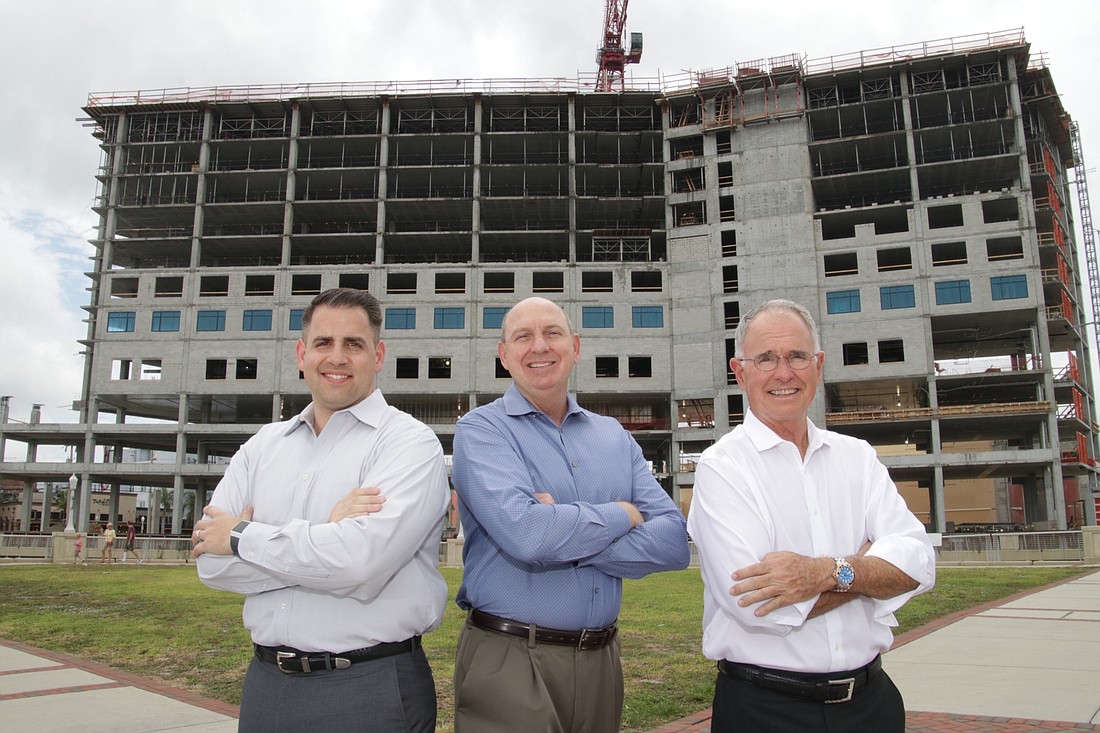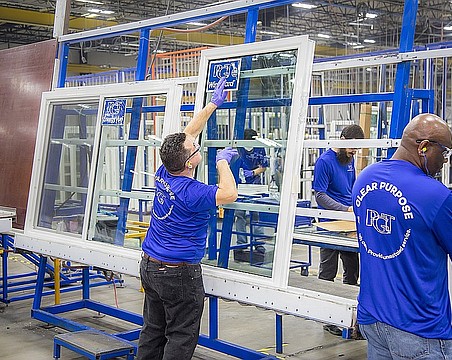Appraisers got a pretty bad rap in the wake of the real estate collapse of the last decade.
Critics argued that shoddy evaluations — often more art than science and sometimes more alchemy than art — led banks to make foolish loans and buyers to make even more foolish purchases, many of which ended in foreclosure without recourse to the appraisers.
A decade on from the foreclosure crisis, the industry has changed. Today appraisals are more science than art, more algorithm than alchemy, and enhanced by the kind of techno revolution that has changed much of American business.
“The way appraisals are conducted today and how they were done 20 years ago, or even 10 years ago, is totally different,” says Matthew Simmons, a principal at Maxwell, Hendry & Simmons, a Fort Myers-based real estate consulting and appraisal firm. “The quality of the analytics is far superior.”
Once the almost exclusive purview of sole proprietors, today appraisal firms like Maxwell, Hendry have grown in size and sophistication and have focused expertise on a variety of disciplines.
And like Google, Facebook and myriad other tech giants, appraisers today rely increasingly on software to amass statistics to inform their opinions of property value.
“The business today is heavily data driven,” says Gerald Hendry, a 25-year veteran of the appraisal business and another Maxwell, Hendry principal. “So the job now is primarily how to put all that data together in a meaningful way for the client.”
Simmons, who joined the firm in 2005, agrees.
“Computer modeling today allows for a deeper analysis than ever,” says Simmons, 35. “With regression modeling software, we can analyze thousands of properties and isolate variables like the value of a swimming pool. It’s a different world today in terms of what we can do better and faster.”
Technology aside, Maxwell, Hendry differs in other ways from most appraisal practices that offer a window into the industry’s future.
In all, the firm has a staff of 16 — a dozen appraisal professionals and four support staff that focus on a particular niche. Whereas most appraisers either specialize in residential properties or commercial ones, Maxwell Hendry does both and its client base splits pretty evenly between the two.
“A lot of appraisers are sole proprietors,” says Hendry, 50. “It’s 45% of the business in the U.S. But as a firm, we have a culture that’s developed and it makes us different. We have multiple minds and perspectives all within the same firm. And, we like to think of ourselves as consultants primarily and appraisal is part of what we do.”
Today, appraisal accounts for about 60% of Maxwell, Hendry’s workload. Consulting in various aspects carves up the other 40%.
Among the practice’s most prestigious consulting gigs involved Mainsail Lodging & Development LLC, which enlisted the Tampa hotel company even before it had been selected to develop a new 12-story lodging property and adjacent convention center in downtown Fort Myers.
The company’s 243-room Luminary Hotel & Co. and the Harborside Event Center are expected to open next year, at 2200 Edwards Drive in Fort Myers. The hotel will be the first Marriott International Autograph Collection property in Lee County.
“Maxwell Hendry was a great connection for us,” says Mainsail President Joe Collier says. “We had been interested in developing a project in Fort Myers, but they introduced the site to us. We had been looking at a different property other than the city-owned site we’re building on, but Gerald (Hendry) convinced us to reconsider. That’s what started the whole project for us there, which we expect will activate that whole area upon completion.”
Both Simmons and Hendry say the firm’s success is a team effort. They credit the firm’s support staff for being the connective tissue that unifies and holds the practice together.
“By having a really strong support staff, that helps the professional appraisers do what they do best — analyze properties,” Hendry says. “It’s why our model works so well.”
Both partners also say a blend of younger employees and older professionals at the firm, founded in 1983 as W. Michael Maxwell & Associates by the company’s third name partner, balances technology savvy with client-centric knowledge of the industry.
Today, though, the firm hires as many college graduates with computer science and statistics sheepskins as they do business majors, in a nod to the changing role tech is playing in the business.
Of course, Maxwell, Hendry still does the work that traditional appraisal firms have done for decades.
The firm works on value impact and feasibility studies of proposed projects for developers; analyzes economic impacts of developments for municipalities; Community Redevelopment Area needs; and tax appeals.
It remains “heavily involved” in litigation by providing expert witness testimony, too.
“We’ve found the legal community does not want to hear ‘this is my opinion’ anymore,” Hendry says. “They want to hear ‘this is my opinion based on all this data that we have compiled.’”
All the while, Simmons says the practice remains anchored around the idea of keeping people focused.
“We’ve tried to segment areas that allow people to stay in their best lane and focus, because we know we can’t do all things well,” Simmons says. “A jack of all trades is often a master of none.”
At the center of it all, however, is the technology evolution inspired by the economic downtown of 2009.
“The downtown prompted us to really work on retooling,” Simmons says. “And to do that, we embraced technology in a big way and used it to update our processes and capabilities.
“The downturn was an opportunity for us to recalibrate our tools and come out leaner and more efficient,” he adds.
Simmons thinks many appraisers around the country, however, have been slower to adapt.
“I think a lot of the industry has struggled with all the changes in technology and practices,” he says. “It’s the thing we hear most that appraisers are grappling with, because they have always done things a certain way and they’re accustomed to that way.”
But while both Simmons and Hendry are convinced that the industry will undergo further rapid and transformational change, each says Maxwell, Hendry intends to focus on one key element that has allowed it to prosper.
“We find more and more that we’re taking on, and gravitating to, more complex assignments, because the problems today are more complex and because we have the capabilities in-house to solve those types of problems,” Hendry says.






